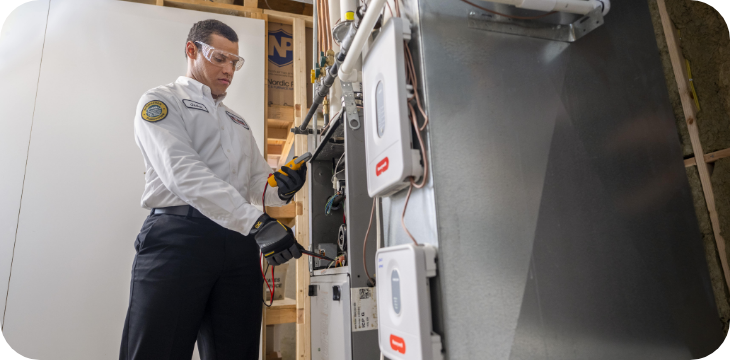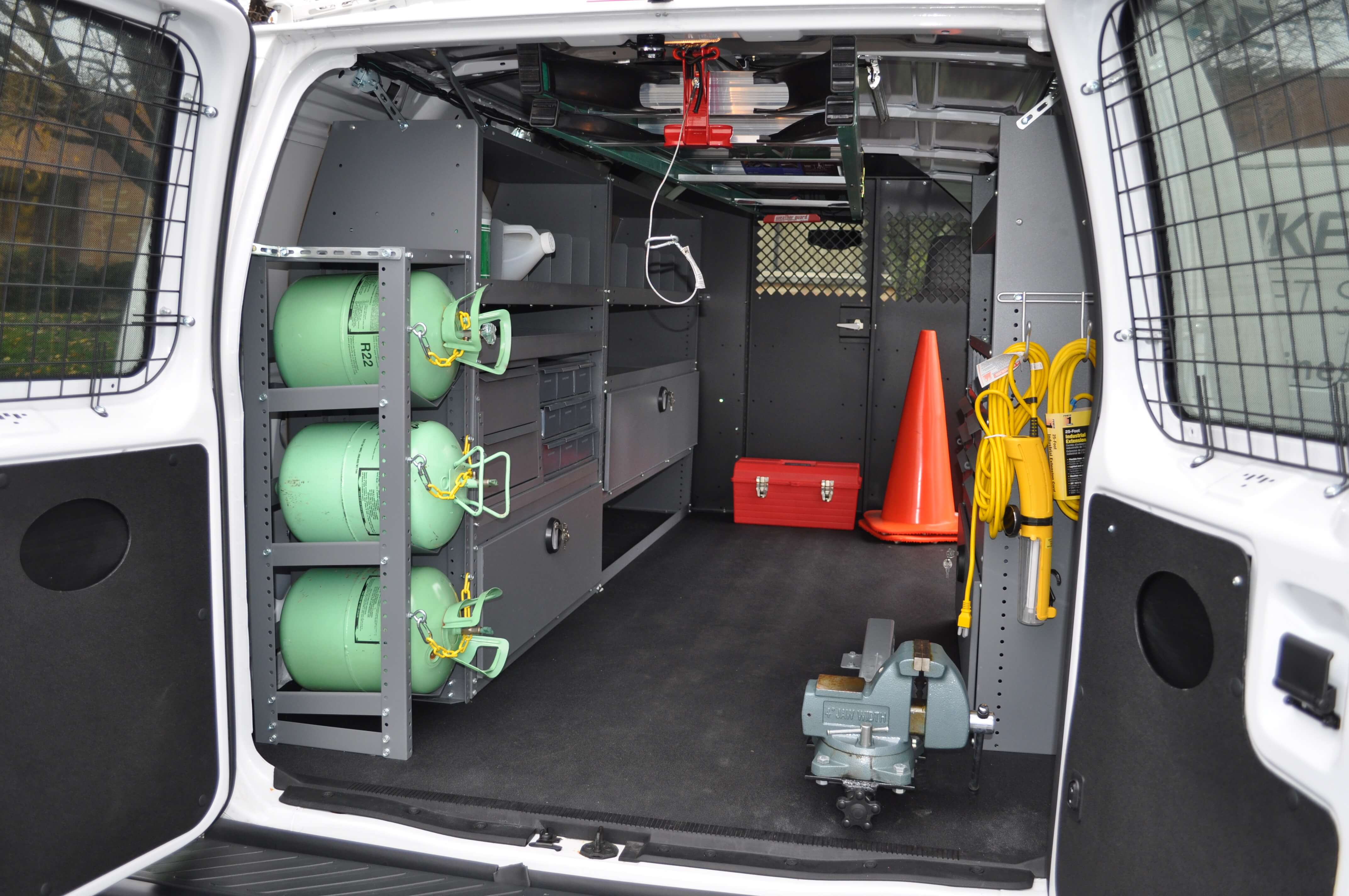Professional Maintenance Services by DMAKS HVAC You Can Rely On.
Professional Maintenance Services by DMAKS HVAC You Can Rely On.
Blog Article
Energy-Efficient HVAC Equipments to Conserve on Utility Expenses
As energy prices remain to increase, the importance of energy-efficient a/c systems becomes increasingly evident. These systems not only guarantee substantial savings on utility costs however also add to a more sustainable future by reducing power intake. With numerous alternatives available, including geothermal warm pumps and ductless mini-splits, building proprietors encounter a wide variety of selections that can improve convenience and air top quality. Recognizing the key features and upkeep requirements is crucial to optimizing these advantages. What elements should be prioritized when choosing the appropriate system for your demands?
Advantages of Energy-Efficient HVAC Equipments
Energy-efficient HVAC systems provide many advantages that prolong beyond mere cost financial savings. By consuming less energy, these systems add to reduce greenhouse gas exhausts, assisting to battle environment change and promote sustainability.
In addition, energy-efficient cooling and heating systems usually provide enhanced comfort levels. A lot of these systems feature sophisticated innovation that enables much better temperature level control and boosted air top quality (DMAKS HVAC). This brings about a much healthier interior setting, which is specifically vital for people with allergies or respiratory issues
Additionally, purchasing energy-efficient heating and cooling systems can improve property worth. As even more customers focus on power performance, homes and structures outfitted with these systems may attract greater bids in the realty market.
Kinds Of Energy-Efficient A/c Options
Just how can home owners and companies pick one of the most suitable energy-efficient a/c options for their needs? The market uses a selection of energy-efficient a/c systems, each created to improve convenience while decreasing energy usage.
One choice is the variable refrigerant circulation (VRF) system, which successfully manages the temperature level in several zones within a building. This system adjusts its cooling agent flow to match the wanted temperature level, causing substantial energy savings.
One more popular option is geothermal heatpump, which make use of the earth's secure temperature to warm and trendy areas. By moving warm to and from the ground, these systems show outstanding performance, especially in modest climates.
Furthermore, ductless mini-split systems provide an energy-efficient option for homes doing not have ductwork. These systems permit zone-specific heating & cooling, minimizing power waste in unoccupied locations.
Lastly, high-efficiency heating systems and a/c, with sophisticated SEER and AFUE ratings, provide trusted environment control while taking in less power than typical designs. By evaluating these choices, homeowners and organizations can choose a HVAC system tailored to their certain demands and power performance objectives.
Key Functions to Consider

Following, explore the sort of compressor utilized in the system. DMAKS HVAC. Variable-speed compressors can adjust their result to match the heating or cooling down need, resulting in boosted comfort and power financial savings contrasted to single-speed versions. Furthermore, search for systems equipped with clever thermostats that supply programmable settings and remote gain access to, enabling much better control over energy intake
Another important attribute is the system's air filtration ability. High-efficiency filters can boost interior air high quality and minimize power intake by guaranteeing the system runs successfully. Consider the kind of refrigerant utilized; modern check over here systems commonly use green cooling agents that have a reduced environmental impact.
Last but not least, make certain that the system works with zoning innovation, which enables customized temperature level control in various areas of your home, enhancing convenience while minimizing power usage.
Tips for Choosing the Right System


Following, take into consideration power efficiency scores, specifically the Seasonal Energy Efficiency Ratio (SEER) for cooling systems and the Annual Gas Application Effectiveness (AFUE) for heating systems. Higher scores suggest better effectiveness, which can result in significant financial savings on utility bills with time.
Furthermore, evaluate the kind of a/c system that best matches your way of life and budget. Choices consist of central air, ductless mini-splits, and warmth pumps, each with its own collection of advantages and downsides.
Don't forget the significance of correct setup and sizing; an incorrectly sized system can cause inefficiencies and boosted wear. Seek advice from with a professional A/c contractor to acquire experienced recommendations customized to your home's one-of-a-kind requirements. This detailed approach will ensure that you choose an energy-efficient cooling and heating system that meets your requirements and budget plan properly.
Maintenance for Ideal Effectiveness
As soon as the right heating and Our site cooling system remains in area, recurring maintenance becomes essential to making sure optimum performance and longevity. A well-maintained system operates much more successfully, causing reduced power intake and lowered energy bills. Regular evaluations and tune-ups must be arranged a minimum of two times a year-- when prior to the air conditioning period and when before the home heating season.

Property owners need to likewise be vigilant regarding monitoring their a/c system's performance. Uncommon noises, changing temperature levels, or raised energy costs can show underlying issues that call for instant focus. By resolving these issues promptly, home owners can protect against costly repairs and extend the life expectancy of their systems.
Purchasing an upkeep plan with a certified technician not just enhances effectiveness but additionally gives assurance, knowing that the system is running at its ideal. DMAKS HVAC. Regular upkeep is consequently necessary for sustaining power efficiency and minimizing total functional prices
Verdict
To conclude, energy-efficient a/c systems offer a sensible solution for reducing utility bills while enhancing comfort and air quality. By incorporating advanced technologies and options such as geothermal heat pumps and ductless mini-splits, property proprietors can attain substantial power financial savings and add to environmental sustainability. Careful factor to consider of system attributes and recurring upkeep additionally makes sure ideal performance, making energy-efficient systems a sensible financial investment for see this here both financial and environmental benefits.
Report this page